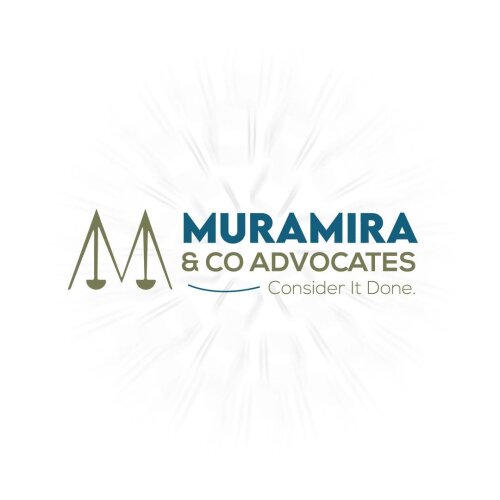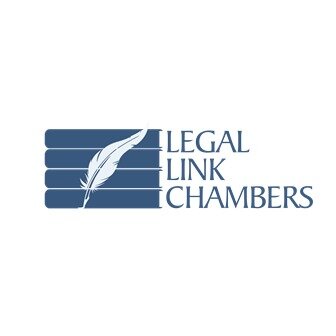Best Private Equity Lawyers in Rwanda
Share your needs with us, get contacted by law firms.
Free. Takes 2 min.
Or refine your search by selecting a city:
List of the best lawyers in Rwanda
About Private Equity Law in Rwanda
Private equity (PE) involves investment funds that directly invest in private companies or engage in buyouts of public companies to delist them from stock exchanges. In Rwanda, the private equity sector is experiencing steady growth due to the country's business-friendly reforms, stable political environment, and efforts to attract foreign direct investment. Private equity legal practice in Rwanda includes a range of activities such as deal structuring, regulatory compliance, due diligence, fund formation, and complex negotiations. The legal framework governing private equity is shaped by broader commercial, company, and investment laws set out by Rwandan regulatory bodies.
Why You May Need a Lawyer
The complexities of private equity transactions in Rwanda make legal guidance essential, especially if you are an entrepreneur, investor, or corporate executive. Common situations where legal expertise is crucial include:
- Structuring and negotiating private equity deals to protect your interests
- Complying with local regulations relating to foreign investment, competition, and company law
- Conducting thorough due diligence to identify potential risks before investing
- Drafting and reviewing contracts, shareholder agreements, and exit strategies
- Resolving disputes that may arise during or after investment
- Facilitating mergers, acquisitions, or joint ventures involving equity participation
- Ensuring regulatory clearance and approvals are obtained in a timely manner
Local Laws Overview
Several key pieces of legislation and regulatory bodies are central to private equity activities in Rwanda. These include:
- Companies Law - Governs the formation, management, and operation of companies, including matters related to shares and shareholder rights.
- Investment Promotion and Facilitation Law - Outlines incentives and requirements for foreign and local investors, including provisions for private equity funds.
- Capital Markets Authority (CMA) - Regulates securities business, public offering of shares, and protects investor interests.
- Rwanda Development Board (RDB) - Facilitates business registration, investment approval, and offers guidance on compliance requirements.
- Competition Law - Ensures private equity transactions do not stifle competition or create monopolies.
- Anti-Money Laundering (AML) Regulations - Mandates rigorous checks to curb illicit financial activities in investment transactions.
Understanding and complying with these regulations is critical for the success and legality of private equity deals in Rwanda.
Frequently Asked Questions
What is private equity?
Private equity refers to investment in companies that are not publicly listed on a stock exchange. Investments can take the form of capital infusions, management buyouts, or venture capital aimed at growing or restructuring target companies.
Who regulates private equity in Rwanda?
The Capital Markets Authority (CMA) regulates the private equity sector in Rwanda, ensuring investor protection and compliance with national laws. The Rwanda Development Board (RDB) supports company registration and investment facilitation.
Can foreigners invest in private equity funds in Rwanda?
Yes, foreigners can invest in Rwandan private equity funds, subject to compliance with investment and foreign exchange laws. The RDB provides guidance and necessary approvals for foreign investors.
What legal structures are common for private equity funds in Rwanda?
Limited liability companies and partnerships are commonly used as vehicles for private equity funds, given their flexibility for structuring investment and distributing returns.
What types of businesses attract private equity in Rwanda?
Private equity investors focus on scalable sectors such as agribusiness, technology, healthcare, energy, manufacturing, and financial services.
Is due diligence mandatory in private equity transactions?
While not legally mandated, due diligence is a standard and critical process to evaluate financial, legal, and operational risks before making an investment.
Are there restrictions on profit repatriation for private equity investors?
Rwanda permits the repatriation of profits, capital, and dividends, subject to compliance with tax and foreign exchange regulations.
How are disputes arising from private equity deals resolved?
Disputes can be resolved through negotiation, mediation, arbitration, or the courts, depending on the terms of the investment agreement and the preference of the parties involved.
What should be included in a private equity agreement?
Key elements include investment amount, valuation, governance rights, exit mechanisms, dispute resolution clauses, and representations or warranties from all parties.
What is the process for registering a private equity transaction in Rwanda?
This typically involves company registration with the RDB, filing investment-related documents with relevant authorities, seeking sectoral approvals where necessary, and compliance checks by the CMA.
Additional Resources
If you need guidance, the following bodies and organizations can offer information or support related to private equity in Rwanda:
- Capital Markets Authority (CMA) - Regulates the markets and investor relations
- Rwanda Development Board (RDB) - Facilitates investment and business registration processes
- Institute of Certified Public Accountants of Rwanda (ICPAR) - For independent due diligence and audit support
- Rwanda Bar Association - For finding qualified legal professionals specializing in private equity and commercial law
- Local business associations and chambers of commerce - For sector-specific insights and networking
Next Steps
If you are considering private equity investment or are entering into a transaction in Rwanda, take the following steps to protect your interests:
- Gather background information about your investment or business goals
- Prepare a list of questions or concerns regarding the structure, legal implications, and potential risks of the intended transaction
- Consult a lawyer or legal advisor with expertise in Rwandan private equity law and practice
- Ensure all agreements and documentation are professionally drafted and reviewed
- Remain updated on legal and regulatory developments that may affect your investment
- Reach out to relevant government bodies or associations listed above for additional information or support
Having reliable legal advice and professional guidance will safeguard your investments and enable you to navigate the private equity landscape in Rwanda with confidence.
Lawzana helps you find the best lawyers and law firms in Rwanda through a curated and pre-screened list of qualified legal professionals. Our platform offers rankings and detailed profiles of attorneys and law firms, allowing you to compare based on practice areas, including Private Equity, experience, and client feedback.
Each profile includes a description of the firm's areas of practice, client reviews, team members and partners, year of establishment, spoken languages, office locations, contact information, social media presence, and any published articles or resources. Most firms on our platform speak English and are experienced in both local and international legal matters.
Get a quote from top-rated law firms in Rwanda — quickly, securely, and without unnecessary hassle.
Disclaimer:
The information provided on this page is for general informational purposes only and does not constitute legal advice. While we strive to ensure the accuracy and relevance of the content, legal information may change over time, and interpretations of the law can vary. You should always consult with a qualified legal professional for advice specific to your situation.
We disclaim all liability for actions taken or not taken based on the content of this page. If you believe any information is incorrect or outdated, please contact us, and we will review and update it where appropriate.
Browse private equity law firms by city in Rwanda
Refine your search by selecting a city.














